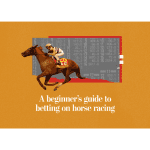Understanding Trebles in Betting
Trebles in betting refer to a type of wager that involves selecting three separate outcomes and combining them into a single bet. This means that all three selections must be successful for the bet to win. Trebles are popular among punters due to the potential for higher returns compared to single bets or doubles. They offer a way to amplify winnings by multiplying the odds of each selection together, creating a larger payout if all predictions are correct.
When placing a treble bet, punters have the flexibility to choose selections from various sports events or markets. This versatility allows for creativity in constructing the bet based on individual preferences or strategies. However, it’s essential to carefully consider each selection to increase the chances of a successful outcome, as the risk of losing also escalates with each added leg to the bet.
Definition of Trebles
In the realm of sports betting, a treble refers to a type of wager that combines three different selections into a single bet. Each selection must win in order to secure a successful outcome for the bettor. Essentially, trebles involve predicting the correct results of three separate events, often from the same sport or across different sports.
When placing a treble bet, the potential pay-out is determined by multiplying the odds of each selection together. This means that the more selections a bettor includes in their treble, the higher the potential return, as the odds are compounded. Trebles offer an appealing risk-reward balance for bettors who are looking to increase their potential winnings while still keeping the number of selections relatively manageable.
How Trebles Work in Betting
To understand how trebles work in betting, it is essential to grasp the concept of combining three selections into a single wager. When placing a treble bet, the bettor selects three different outcomes across three different events. These selections are then combined into one overall wager, which requires all three predictions to be correct for the bet to win.
If one of the selected outcomes does not come to fruition, the entire treble bet is lost. Conversely, when all three predictions are accurate, the potential winnings are significantly higher than if the three selections were wagered on individually. The key mechanism in treble betting is the compounding effect of the odds, resulting in the potential for substantial returns if all three selections prove successful.
Advantages of Betting on Trebles
One of the key advantages of betting on trebles is the potential for significantly higher payouts compared to single bets. By combining three selections into one bet, trebles offer the opportunity to multiply your stake and winnings if all three selections are successful. This can be appealing to bettors looking to maximize their profits with a single wager.
Another advantage of betting on trebles is the excitement and thrill it can bring to your betting experience. With three selections on the line, each outcome can have a significant impact on the overall bet. This added level of suspense can make watching the events unfold even more engaging and enjoyable, especially for those who value the entertainment aspect of betting.
Disadvantages of Betting on Trebles
One major downside of betting on trebles is the increased level of risk involved compared to single or double bets. With trebles, you are combining three selections into one bet, which means all three must be successful for you to win. This can significantly decrease your chances of winning as compared to single bets where only one selection needs to be correct.
Another disadvantage of betting on trebles is the potential loss of control over your betting strategy. When you combine multiple selections into one bet, it becomes harder to accurately assess the probability of each outcome. This can lead to impulsive betting decisions and a lack of discipline, which are crucial factors in successful betting. Additionally, the temptation of potentially high payouts from trebles may lead to overconfidence and reckless betting behavior.















